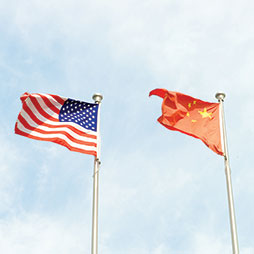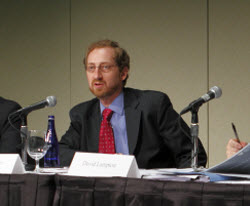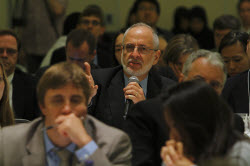
Power Constrained Sources of Mutual Strategic Suspicion in U.S.-China Relations
2010 Asia Policy Assembly: Plenary Sessions
The 2010 Asia Policy Assembly, convened in Washington, D.C., on June 17-18, 2010, consisted of five plenary sessions, twenty-one roundtable sessions, and four keynote addresses.
Welcome Remarks and Introductions
Aaron Friedberg, Princeton University
Strategic Challenges and Opportunities for the United States in Asia
Michael Schiffer, U.S. Department of Defense
Sources of Mutual Strategic Suspicion in U.S.-China Relations
David Lampton, Johns Hopkins University-SAIS
Military Dimensions of Asia’s Strategic Environment
Thomas Mahnken, Johns Hopkins University-SAIS
Plenary 1 Q & A
PLENARY 2: Global Trade, Investment, and Finance
Session was off the record. No audio available.
PLENARY 3: International Implications of Domestic Political Transitions
Richard Samuels, Massachusetts Institute of Technology
Japan’s New Asianism: Threat or Opportunity?
Daniel Sneider, Stanford University
South Korean Democracy, Identity Politics, and U.S.-Korea Relations
Katharine Moon, Wellesley College
Democratization and Indonesian Foreign Policy
Ann Marie Murphy, Seton Hall University
Plenary 3 Q & A
PLENARY 4: International Security: Will the Pacific Remain Pacific?
Welcome Remarks and Introductions
June Teufel Dreyer, University of Miami
How to Think about the Asian Balance of Power
Dan Blumenthal, American Enterprise Institute
China’s Military Capabilities and Doctrine
M. Taylor Fravel, Massachusetts Institute of Technology
Discussant
Thomas Fingar, Stanford University
Plenary 4 Q & A
PLENARY 5: Asia 2025 and Beyond
Welcome Remarks and Introductions
Roy Kamphausen, The National Bureau of Asian Research
Prospects for Continued U.S. Predominance in Asia
Ashley Tellis, Carnegie Endowment for International Peace
Demographic Trends and Growth in Asia
Nicholas Eberstadt, American Enterprise Institute
Discussant
Terrence Markin, National Intelligence Council

Mr. Michael Schiffer, Deputy Assistant Secretary of Defense for East Asia, delivers a policy address on the strategic challenges and opportunities for the United States in Asia.

Participants engage panel presenters during an interactive question-and-answer period at the close of a plenary session.




